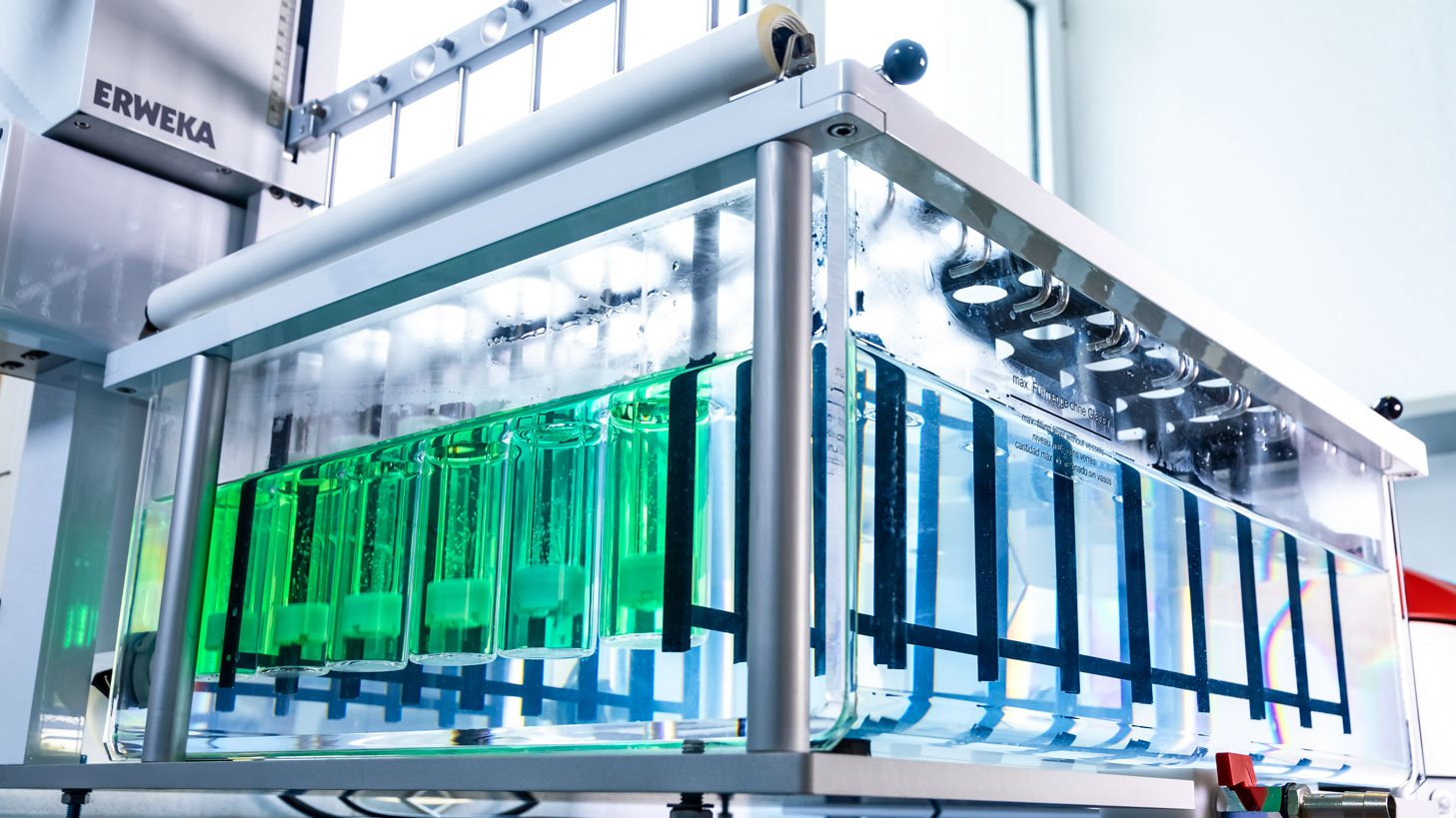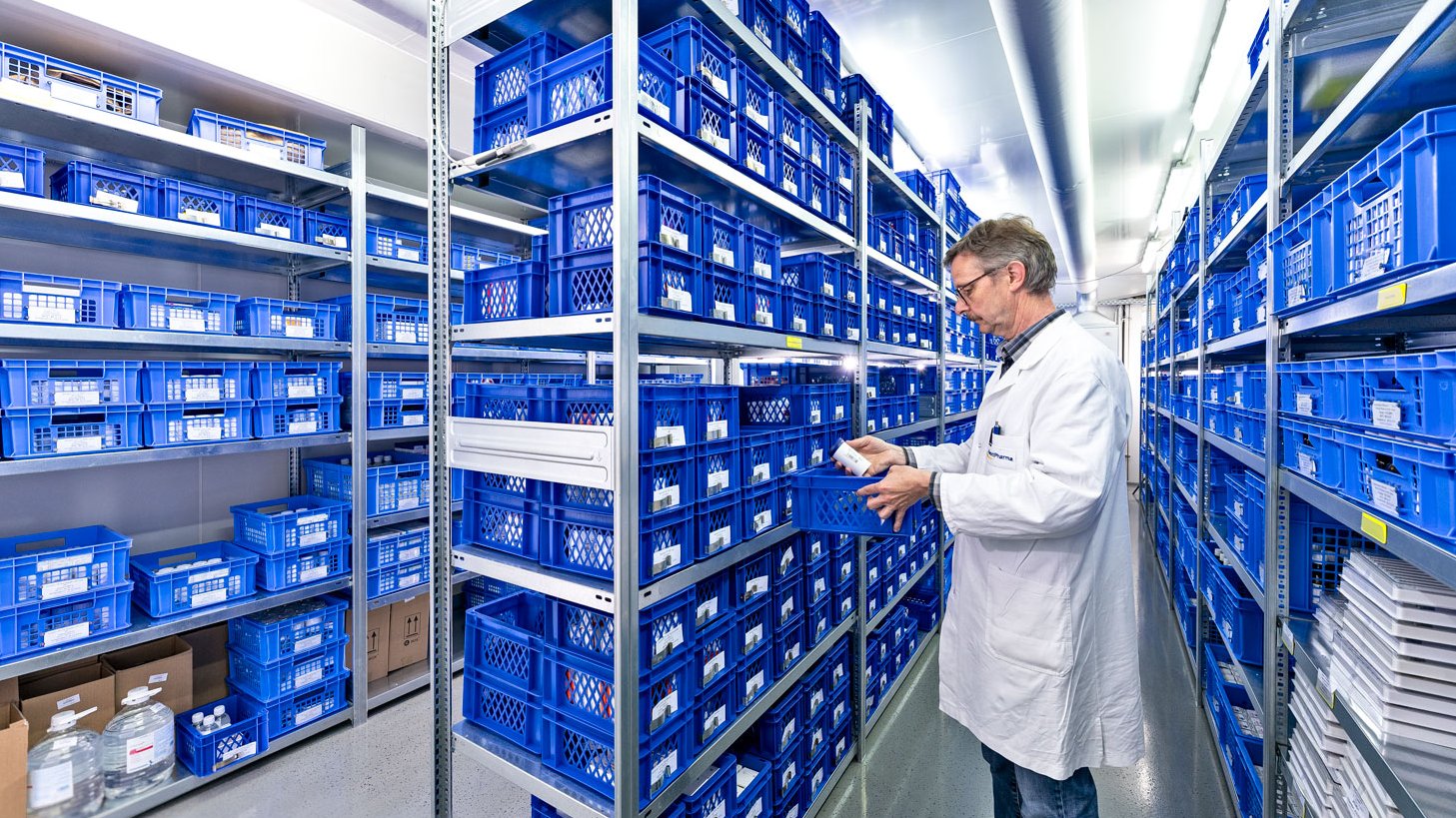- Professional expertise and regulatory qualifications necessary to perform analytical testing of raw materials, bulk materials and finished products
- Well equipped, state-of-the-art laboratories offering comprehensive testing services according to the pharmacopoeia (e.g. EP, USP, BP, JP) and customer specifications
- Comprehensive services for QP release testing
- Assay and chemical tests
- Spectroscopy (UV/VIS, IR, AAS)
- Chromatographic tests (HPLC/ UHPLC, GC, TLC)
- Physical & physico-chemical determinations
- pH
- Viscosity
- Melting Point
- Particle Size
- Loss on drying
- Limit tests
- Heavy Metals
- Ash
- Residual Solvents
- Volatile organic compounds (VOC)
- Organic volatile impurities (OVI)
Pharmaceutical technical procedures:
- Disintegration
- Dissolution
- Hardness
- Friability
- Assay testing
- Dissolution
- HPLC
- GC
- Stability indicating methods
- Accuracy
- Precision
- Specificity
- Detection limit
- Quantitation limit
- Linearity
- Range
- Robustness
- System suitability test
Stability storage and testing
- Study design to storage, monitoring, analytical testing and documentation
- Complete bandwidth of storage conditions in numerous climatic walk-in chambers and climatic cabinets with a total storage capacity of approximately 400 m3
- Refrigerators and freezers available for storage at lower temperatures and chambers for flexible conditions on client's request. All storage chambers are fully controlled with 24h/7d monitoring and alert system
- Support in designing studies for real time, stress tests and photo stability studies
- Development and validation of stability indicating methods
- Examination of stability-relevant parameters
- Storage and management of stability samples
- Interim reports for every testing period
- Comprehensive final report
Climatic Zones include (according to ICH Guidelines)
- 21°C / 45% r.h.
- 25°C / 60% r.h.
- 25°C / 85% r.h.
- 30°C / 65% r.h.
- 30°C / 70% r.h.
- 30°C / 75% r.h.
- 40°C / 75% r.h.
- 5°C, -20°C and -80°C

